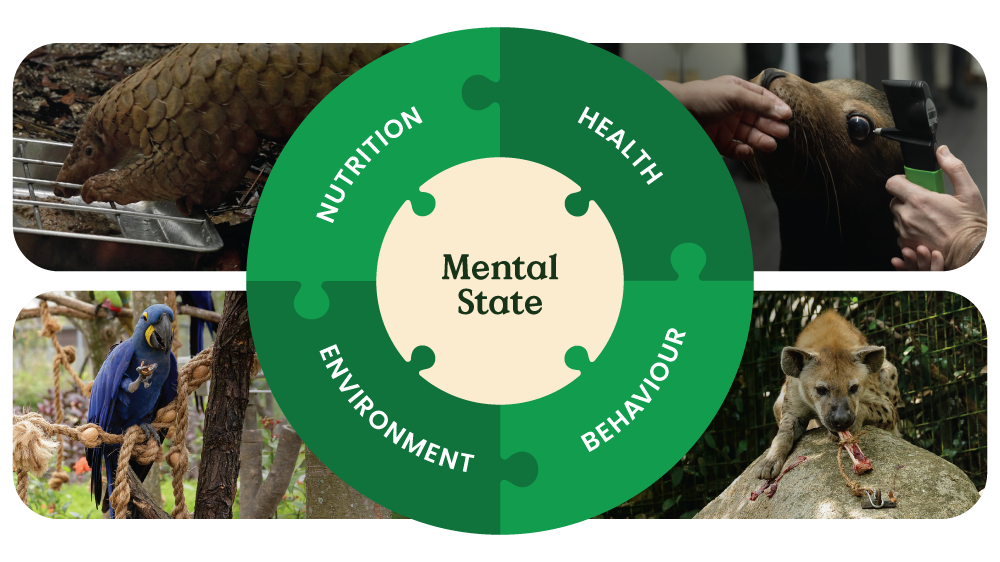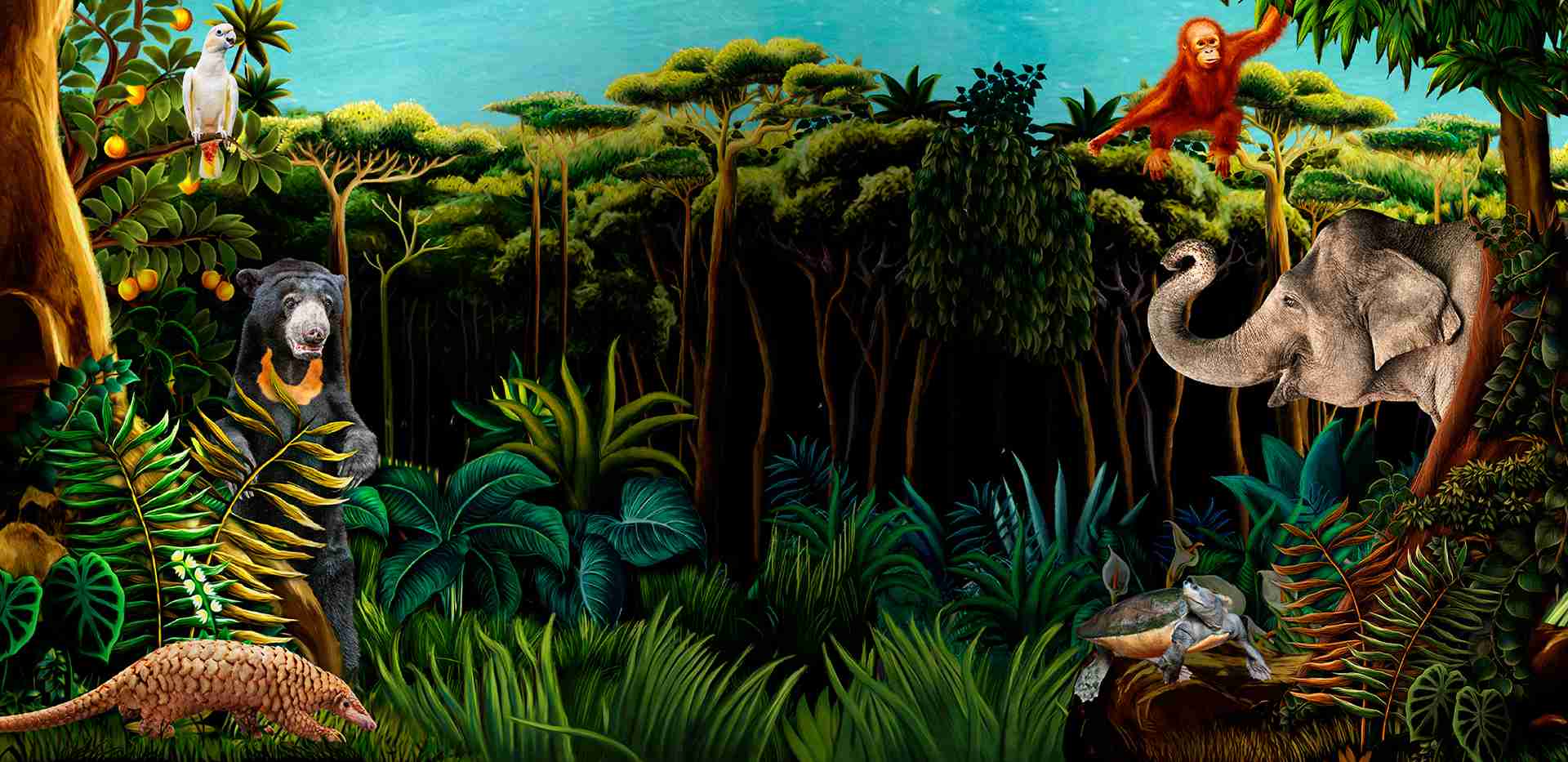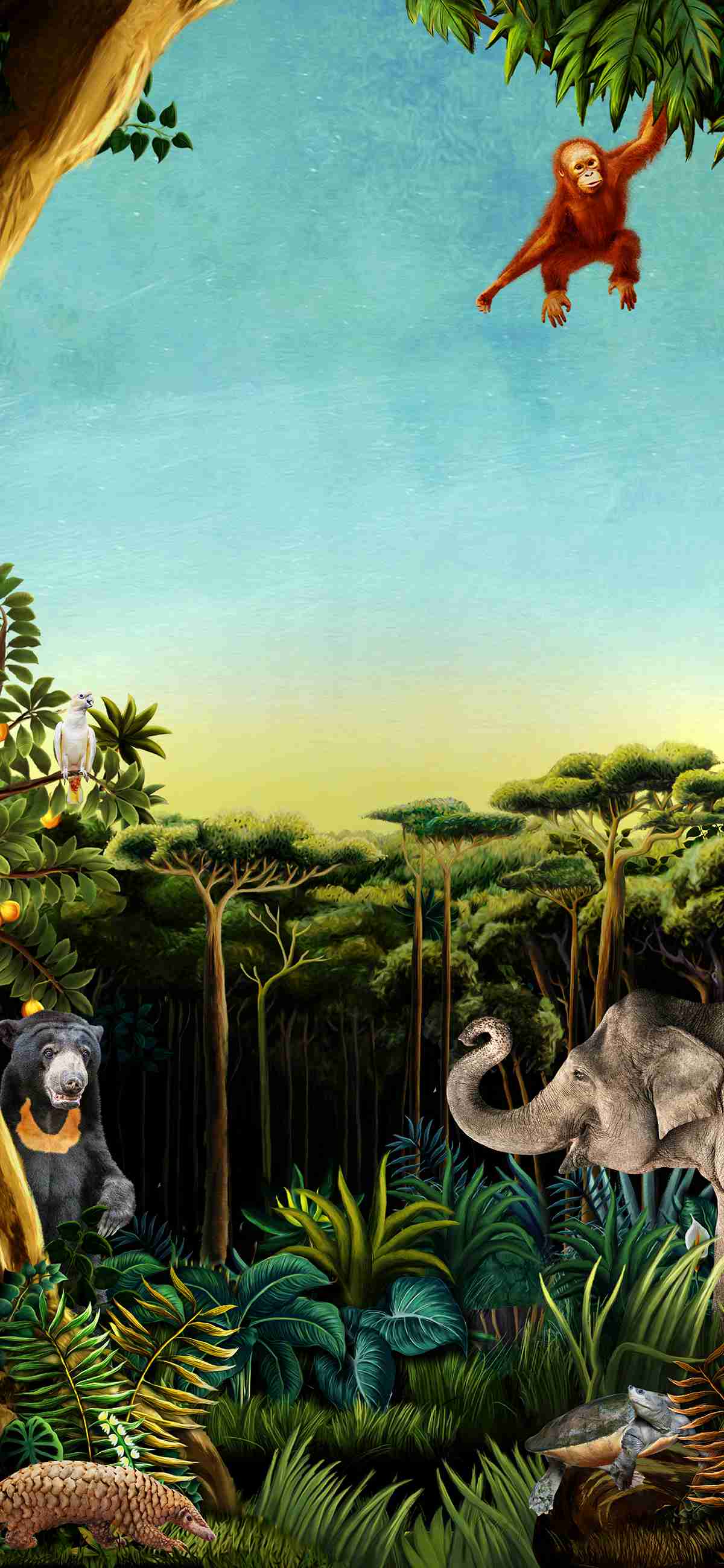At the heart of everything we do is a deep commitment to animal welfare. We strive to provide the highest standards of care, ensuring our animals can thrive and express natural behaviours.
To do this, we are guided by the ‘Five Domains’ model, which enables us to continuously enhance their well-being across all aspects of their lives.
1. Nutrition
- Diets are guided by the latest science and reviewed regularly by our expert nutritionist and vets.
- We keep diets as close as possible to what animals would eat in the wild to mimic their natural diet.
- Animals receive fresh, human-grade quality food and water, prepared with strict hygiene standards.
- Feeding plans are tailored to each animal’s health, age, and life stage.
- Food is presented in ways that encourage natural feeding and foraging behaviours - always with safety in mind.
- Animal health is closely monitored through weight, body condition, and more, to support their wellbeing and longevity.
2. Environment
- All habitats include:
- Adequate, comfortable space and suitable facilities
- Shelter and protection from the elements
- Areas for temperature regulation
- Easy access to food and water
- Privacy or retreat from others when needed
- A variety of natural ground surfaces
- Environments are built with safety in mind - for animals, staff, and guests.
- Animals can choose how they interact with their space and social groups, safely.
- Mixed-species exhibits are used (where appropriate) to enrich behaviours.
- All living areas are regularly maintained for hygiene and animal health.
- Back-of-house areas are designed for top-quality care and safe, stress-free management.
- Exhibits allow easy monitoring and access for animal care teams.
- Animals have daily access to outdoor spaces and are kept indoors only for medical care or quarantine.
3. Physical Health
3a. Daily Wellbeing & Targeted Preventive Healthcare
- Our animals are positively conditioned to daily care, reducing stress and supporting their well-being.
- Stress from housing or social interactions is reduced to support both physical and mental wellbeing.
- Informed by past mortality/morbidity trends of sensitive species, targeted preventive healthcare further focuses on health issues of aquatic animals, birds, reptiles and amphibians (herptiles), hoofed animals, primates and carnivores.
- Even when healthy, animals are observed daily to catch any early signs of illness.
- New animals go through strict quarantine, and staff are trained to manage and prevent zoonotic diseases.
3b. Expert Medical Care
- Our animals receive top-quality veterinary care, including medicine, surgery, and diagnostics.
- Each species is cared for based on tailored health programmes that follow international best practices.
3c. Learning & Improving
- Care practices are reviewed and improved regularly to swiftly address any gaps in animal welfare.
- Clinical records are reviewed regularly by vets and pathologists to guide care and treatment decisions.
- Every animal death is reviewed by a dedicated pathologist to determine the cause and contributing factors, helping vets refine preventive care for the living.
4. Behaviour
- Our animals live in environments that allow them to exercise behavioural choices.
- Social species are housed in natural social structures suited to both species and individual needs.
- Enrichment and care routines encourage a variety of natural behaviours.
- Various forms of enrichment like varied terrain, automatic feeders, and upcycled objects encourage natural behaviours and support physical and mental well-being.
- Programme animals are trained using Positive Reinforcement Training and conditioning to support their wellbeing.
- Animals are offered as many safe choices and options as possible in their daily lives.
5. Mental State
When animals have good nutrition, a comfortable environment, sound health, and the ability to express natural behaviours, they’re more likely to experience positive mental states.
Because we fulfil the first four domains, our animals can feel safe, secure, and mentally stimulated. Emotional well-being is just as important as physical care — and by meeting their needs holistically, we support both.















